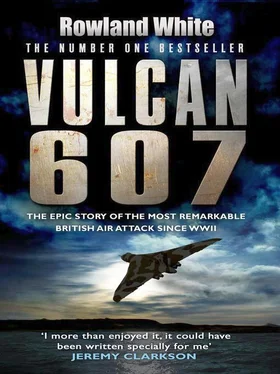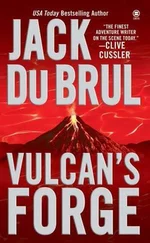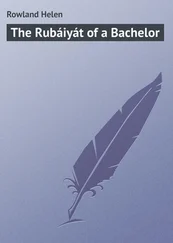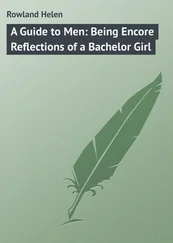Rowland White
VULCAN 607
The Epic Story of the Most Remarkable British Air Attack Since WWII
Everything that follows is, to the best of my knowledge, a true and accurate account of what happened. I’ve not had to join the dots to make the story work. Inevitably memories fade, and in interviewing so many people for the book I’ve been presented with sometimes contradictory accounts. On the rare occasions when this has happened, I’ve done my best to establish a consensus. I’ve drawn on a variety of different sources and this is reflected in the dialogue in the book. Where it appears in quotation marks it’s either what I’ve been told was said, or what’s been reported in previous accounts or records, published and unpublished. Where speech is in italics – often the call-and-response checks that accompany any military flying – it represents genuine dialogue that has been taken from another source to add richness to a scene. I hope it can be argued, with a degree of certainty, that it’s what would have been said. Finally, where internal thoughts are included in italics, they are accurate recordings of what participants told me they were thinking at the time.
I hope I’ve written a book that does justice to those who took part. Needless to say, any mistakes are my own.
R.W. Nant-y-Feinen March 2006
I owe a huge debt of gratitude to large numbers of people without whom I could not have even entertained the idea of writing this book. Martin Withers, 607’s Captain, was the first to commit himself to the project. Had he not done so – and so enthusiastically – it would never have happened. Marshal of the Royal Air Force Sir Michael Beetham was also quick to offer his encouragement and Sir Michael’s support proved crucial. His involvement underpinned the book’s credibility at a very early stage, then facilitated my visit to the Falkland Islands and Ascension Island and a place on a recent RAF air-refuelling sortie.
Apart from Martin, I spoke to a large number of the aircrew who took part. All were open, welcoming and generous with their time and hospitality – sometimes enduring repeated visits and long follow-up phone calls. The list is a long one: Peter Taylor; Hugh Prior; Bob Wright; Dick Russell; John Reeve; James Vinales; Mick Cooper; Barry Masefield (who also kindly arranged for me to join him and the rest of the crew of Wellesbourne Mountford’s Vulcan while it was taxied); Don Dibbens; Alastair Montgomery; Neil McDougall; Bob Tuxford; Ernie Wallis; Alan Bowman; Barry Neal (particular thanks are due here for the guided tour around Victor ‘Lusty Lindy’); Paul Foot; Simon Hamilton.
Help wasn’t limited to those who actually flew the Vulcan and Victors, however. Simon Baldwin was an enthusiastic supporter and great host whose work on the manuscript was kind and invaluable. John Laycock’s guided tour of a Vulcan cockpit and invitation to both the 44 (R) and V-force reunion were hugely appreciated. Jeremy Price and Air Chief Marshal Sir Michael Knight could not have been more friendly or supportive. Air Marshal Sir John Curtiss, Air Vice-Marshal George Chesworth and Keith Filbey were also kind enough to cast their minds back to answer my questions. I’m also extremely grateful to Sir John Nott for making time to see me.
A number of people dedicated to preserving both working examples and memories of the Vulcan and Victor also helped my cause: Felicity Irwin and Dr Robert Pleming of Vulcan to the Sky; Derek and Mark at Wellesbourne Mountford for allowing me aboard their beautifully preserved Vulcan, XM655 on two separate occasions; Richard Clarkson and Dave Griffiths of the Vulcan Restoration Trust; and Bill O’Sullivan of the Newark Air Museum who kindly opened up the cockpit of the museum’s resident Vulcan to me.
Particular thanks should go to David Thomas, Mike Pollit, Barry Masefield (again…), Andy Marson and Al McDicken, who crewed XM655 during the two ground runs I sat in on.
Still with the RAF, but slightly further removed from the action, Air Vice-Marshal Nigel Baldwin and Wing Commander Jeff Jefford of the RAF Historical Branch were helpful in getting the ball rolling and subsequently. Squadron Leader Andy Sinclair, Kate Sesaver and Ken Johnston made smooth arrangements for me to fly with 101 Squadron and to the Falkland Islands. I’m grateful to the crew of VC10 Tartan 41, Squadron Leader Andy Kellett, Flight Lieutenant Marc Rodriguez, Squadron Leader Hugh Davies and Master Air Engineer Rick Gomez. And on my flight south to the Falklands I was very privileged to fly as a guest of Air Marshal Sir Glen Torpy and Captain David Swain, RN. At RAF Waddington, I’d like to thank both Station Commander Group Captain Jeremy Fradgley and Wing Commander Tom Whittingham – who was kind enough to show me round.
Still with the UK armed forces, I’m grateful to Rear-Admiral Roger Lane-Nott for shining a light on HMS Splendid ’s contribution to the war. Lieutenant General Sir Hew Pike and Major General Julian Thompson were also kind enough to help me. I’d also like to record the names of firemen I regret not having had the opportunity to meet: Ken Hayr, Gordon Graham, Chris Lockman, Dave Stenhouse and Pete Standing. All have sadly passed away. The first four all died in flying accidents – an acute reminder of the dangers faced by aircrews.
I was to benefit from an unusual perspective on events when Lieutenant Colonel William Bryden, USAF, took the time and trouble to talk to me.
After arriving on the Falkland Islands themselves, I could not have been made to feel more welcome. Sukey Cameron, the Falkland Islands government representative in the UK, helped point me in the right direction before I left. When I landed at Mount Pleasant, Captain Ben Taylor made sure I was well looked after (despite having left my wallet in the back of a taxi at RAF Brize Norton…). After that, Maria Strange, Jane Cameron and Jenny Cockwell, editor of Penguin News , were generous with their time and consideration. So too were all those I interviewed: Gerald Cheek; John Smith; Hilda Parry; Peter Biggs; Leona Vidal; Liz Elliot; Joe King and Don Bonner. In addition, I should thank Carl Stroud, manager of the excellent Malvina House Hotel, who also helped me manage without cards and cash.
I’d like to thank as well Martin Rappalini, who strove to put me in touch with Argentine Air Force personnel, and Comodoro Héctor Rusticcini, who was kind enough to take the time to answer my questions.
Closer to home there are many people to thank. James Holland was one of the first people I spoke to about writing this book, and he was a source of encouragement from that point on. Harrie Evans, too, was an early confidant and supporter, and a chance to compare notes was always welcome. Lalla Hitchings, who transcribed hours and hours of interviews, relieved me of an overwhelming burden and was instrumental in making the whole thing possible. Ana-Maria Rivera was kind enough to translate Spanish to English and vice versa. Tom Weldon also has to be mentioned for a leap of faith he made ten years ago that changed everything.
When my agent, Mark Lucas, agreed to take the book on, I felt I must be doing something right. His enthusiasm has been reassuring and his input considered and welcome. The same is true of my editor Bill Scott-Kerr. Bill’s been a joy to work with and his faith in the book has been a source of great encouragement. My copy editor, Mark Handsley, has been careful and flexible. I’m grateful to him. And at Transworld I’d like to thank Laura Gammell, Vivien Garrett, Simon Thorogood and everyone in the design department, marketing team and sales force who has worked so hard on the book’s behalf.
Читать дальше










![Helen Rowland - The Widow [To Say Nothing of the Man]](/books/752764/helen-rowland-the-widow-to-say-nothing-of-the-man-thumb.webp)
